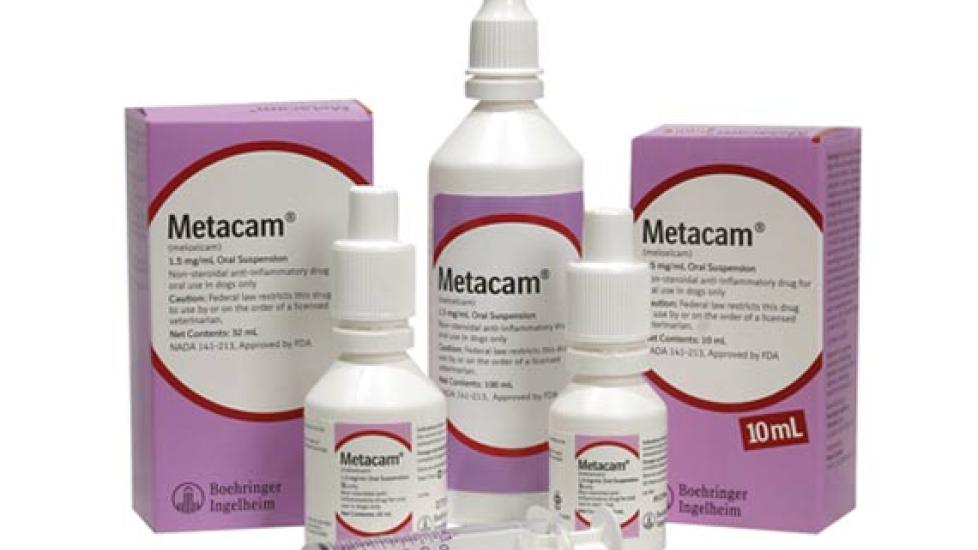Revisiting Meloxicam Use in Cats
Last updated on February 25, 2016
In January of 2011, I wrote about a new warning that was being added to the label of meloxicam, a nonsteroidal anti-inflammatory drug. It read:
Warning: Repeated use of meloxicam in cats has been associated with acute renal failure and death. Do not administer additional doses of injectable or oral meloxicam to cats.
I was pretty bummed out when the reports of kidney failure in cats being treated with meloxicam started to come in. Initially, it looked like the oral formulation of this drug (a honey-flavored liquid that is easy to squirt into a cat’s mouth or add to food) might be a boon for the treatment of chronic pain in cats, such as that caused by osteoarthritis. Research has shown that 90 percent of cats over the age of 12 have radiographic evidence of this disease, yet we don’t have a safe, effective, and economical way to treat their pain.
I used meloxicam in a few patients and one of my own cats for a while with no ill effects, and it worked very well. But after the boxed warning was added to the label, I stopped recommending it in all but the most extreme, euthanasia-is-pending type cases.
Maybe I over-reacted. A study published last October offers a different perspective on meloxicam use in cats with both degenerative joint disease (osteoarthritis) and chronic kidney disease. Let me paraphrase the paper’s abstract:
Medical records (2005-2009) of a feline-only practice were searched for cats with degenerative joint disease (DJD) treated using meloxicam. These cats were subdivided according to whether detectable chronic kidney disease (CKD) was present ('renal group'), or not ('non-renal group'), and, for the 'renal group,' according to the cat's IRIS category. Serum biochemistry, urinalysis (including urine specific gravity [USG]), body mass and condition score were monitored regularly. Progression of CKD in the 'renal group' and 'non-renal group' of cats was compared to two groups of age- and IRIS-matched control cats not receiving meloxicam (from the same clinic, over the same time period). Thirty-eight cats with DJD receiving long-term meloxicam therapy met the inclusion criteria. Of these, 22 cats had stable CKD at the start of treatment (stage 1, eight cats; stage 2, 13 cats; stage 3, one cat). The remaining 16 cats initially had normal renal analytes and adequately concentrated urine. There was no difference in sequential serum creatinine concentration or USG measurements between the 'non-renal group' treated with meloxicam compared to control cats not treated with meloxicam. There was less progression of renal disease in the 'renal group' treated with meloxicam compared to the age- and IRIS-matched cats with CKD not given meloxicam. These results suggest that a long-term maintenance dose of 0.02 mg/kg of meloxicam can be safely administered to cats older than 7 years even if they have CKD, provided their overall clinical status is stable. Long-term meloxicam therapy may slow the progression of renal disease in some cats suffering from both CKD and DJD. Prospective studies are required to confirm these findings.
Interesting. You have to wonder what the difference is between this Australian study and what we were seeing here in the States. Could it be that some U.S. vets were not recommending this ultra low dose of the drug for cats or that owners were thinking "if a little is good, more will be better?" I don’t know, but I’m reconsidering the use of meloxicam in cats that haven’t responded to other pain relieving treatments as long as their owners are well aware of both the potential benefits and risks.

Dr. Jennifer Coates
Image courtesy of Boehringer Ingelheim
